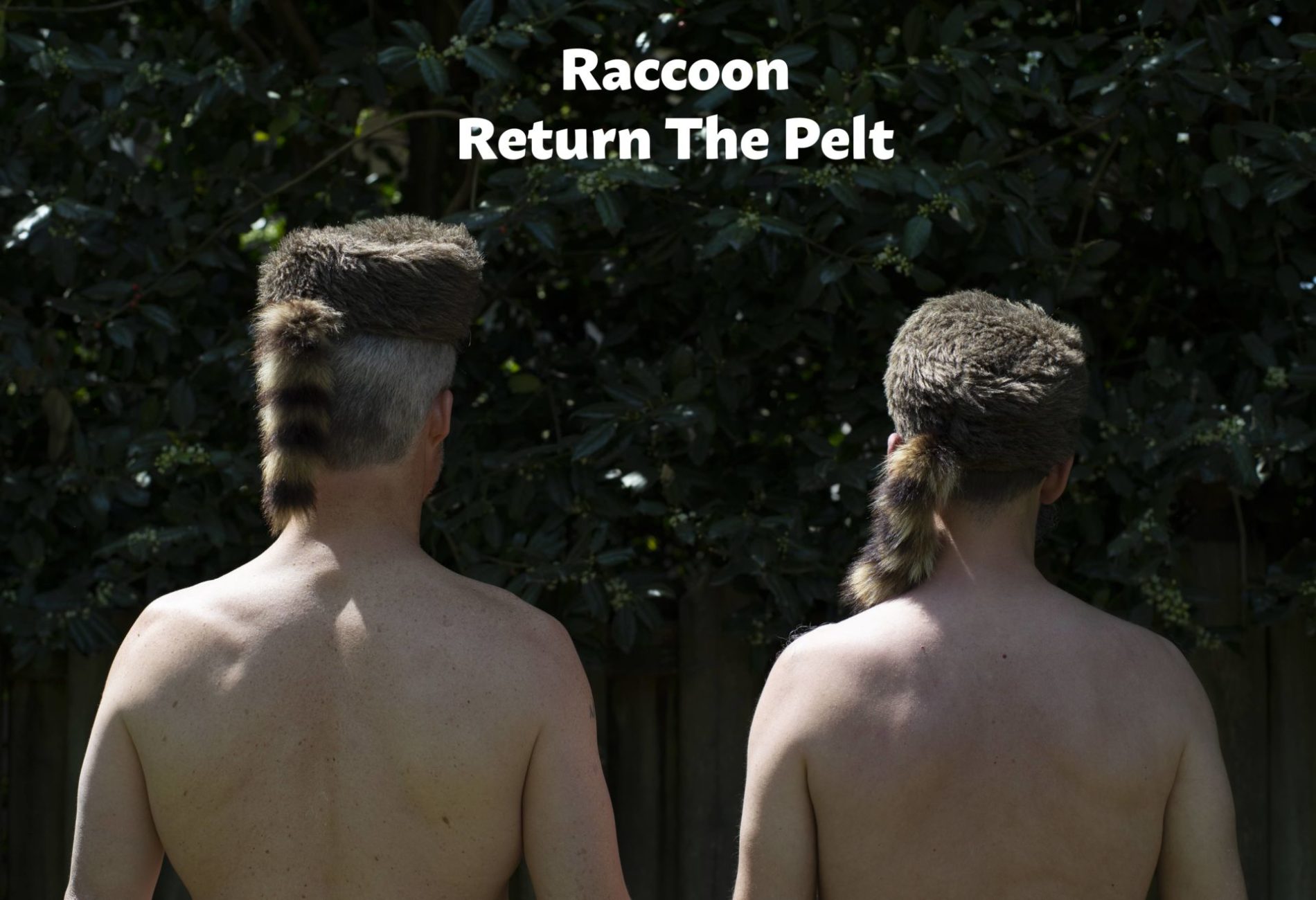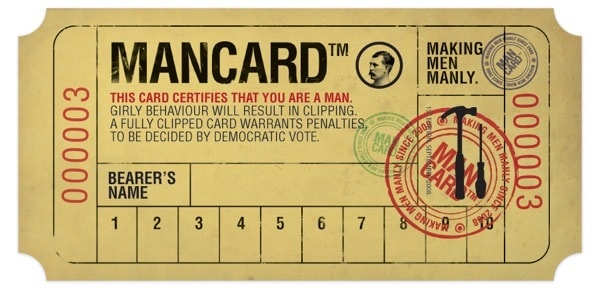I’ve had one fist-fight in my life. It happened when I was ogling three girls who had climbed, semi-provocatively, on top of a long desk in our 6th grade classroom. A prepubescent boy—a rival—moved to take my spot. We jockeyed for position, and then, suddenly and without clearly understanding why, we were entangled on the floor, striking blows at each other. After what seemed like an eternity, I managed to pin my rival beneath me; but only after he had succeeded in ripping out a large clump of my hair.
I was immediately filled with both pride and shame, and my conflicted feelings were only reinforced by the reactions of those around me. The other boys—and more importantly, the girls!—looked at me quite differently than they had only moments before. I may have been short, but I was strong and quick. I could assert my strength on the basketball court and baseball field, and if necessary, in a fight. I may not look anything like John Wayne, but I could practice a similar form of machismo; and I was therefore on my way of becoming a real man.

My teachers in my religious Jewish school didn’t see things in this way, though. They reminded me that my Bar-Mitzvah was rapidly approaching and that a good Jewish man follows all of the laws in the Bible and the Talmud. He is not violent. He is a man of ethics, who tries to do as many good deeds as possible. He values intellectual—not physical—combat, which he practices while debating the complicated philosophical and ethical concepts detailed in Jewish law.
That I was pulled between two models of masculinity—the macho man and the ethical man—didn’t make me special. Many males mature in confusion. But my rift between biology (a man has violent impulses) and invention (a man is what you make him) helped me understand early on: Comedy.
The conflict is comic. What you expect is not what you get. This is the structure of funny. Slapstick, where you expect to walk blithely and not slip on the banana. Punning: a word doesn’t mean what you think. “Why shouldn’t you write with a broken pencil? It’s pointless.” One-liners, like Jerry Seinfeld’s: “Proof that we don’t understand death is that we give dead people a pillow.” And self-deprecating one-offs, Dangerfield’s turf: “When I was a kid my parents moved a lot, but I always found them.”
Such is the melancholia of all humor: It reveals the gap between comfort and reality. And such is the glee—of cleverly tricking the “given,” opening to new possibilities for being.
Editors Pick:
 Sustainable Consumption and Production Are Key for Sustainable Development
Sustainable Consumption and Production Are Key for Sustainable Development
’57 Chocolate: Empowering Young People and Farmers in Ghana with Tasty Chocolate
 Sustainable Consumption and Production Patterns: A New Avenue For Economic Developme
Sustainable Consumption and Production Patterns: A New Avenue For Economic Developme
The legislature in my home state lacks humor, as most legislatures do. In 2016, this body voted in favor of the Public Facilities Privacy and Security Act, otherwise known as House Bill Two, or HB2. The most controversial part of the bill, signed into law by then Governor Pat McCrory, forced state schools to match bathrooms with biology. The assumption behind the vote was that gender equals genitalia. This gender vision scorns invention, our ability to construct selves beyond DNA. If I have a penis but identify as a woman, why can’t I be allowed, when nature calls, to behave as a woman? Those opposing HB2 asked this question, to which supporters of the bill might say: What’s to stop you from identifying as an African-American, even though you are Caucasian?

These are philosophical questions going back 200 years, the old debate between essence and existence. Am I given an identity by God or nature? Or do I fashion myself out of my particular historical situation? Both, recent neurology posits. Michael Gazzaniga has demonstrated that the left brain converts the right brain’s raw data into meaningful narratives. Daniel Dennett agrees: We forge our “I” by translating mental impressions into a novel in which we are the protagonist.
As cognitive behavioralists know, these findings are psychotherapeutically valuable: A person clinically depressed can live into narratives more conducive to health. But this interplay between essence—what shapes you—and existence—what you forge—goes beyond mental health to comedy’s joie de vivre.
Place your biology in comic dialogue with your inventions. This dialectic is Socratic. Socrates in the agora asks some cocksure philosopher what justice is. Socrates wants to know, because he knows nothing. (So he pretends, playing the straight man.) The interlocutor gets going, confident he can get it right. (He wants to be the banana man.) The more he pushes for certainty, though, the more Socrates, through baiting questions and gentle mockery, demonstrates that his partner is ignorant and that he himself understands substantially. But Socrates—now funny and straight at once—isn’t out to conclude. He wants to keep the conversation going. It is invigorating, joyful.

I used to debate Jewish philosophy and law with Chavruta partners. Now, I tackle masculinity with my friend, Eric Wilson: ex-quarterback, witty, sharp. I take a position, he exposes its limitations, I do the same, he ridicules my blindness, I riff on his own biases, I laugh at myself, we laugh at each other, and on it goes, the vitalizing et cetera of generous improvisation. We mostly entertain: What does it mean to be a man? Circumcised, I circumcise both of my boys—why?—can we grow our foreskins back? My cheeks redden—what’s that about?—as I cling, in my wet speedo, to another man’s very muscular naked torso on the backseat of his Vespa. Raccoons invade my home and rip up the drip irrigation lines I installed to try to be an Eco-Man; so how come I succumbed to the impulse to try to defend “my” turf with a BB gun?
Vulnerable is what I am when thinking about these charged instants—even more vulnerable when Eric presses me to go deep inside, where the fear and desire are. The comedy lightens, though. It maintains the dialogue between serious neurosis and humorous self-effacement.
Gambol between evolution and intention. Scorn yourself into felicity. Break-down your manhood, to be a better man.

To hear this rough-and-tumble therapy in action, check out my new podcast with Eric Wilson, BELT: A 2-Man Memoir, on Apple Podcasts, Spotify, Stitcher, TuneIn, or https://belt.live
Joel Tauber sparks discourse about ethics, environmentalism, and mysticism by creating video installations, films, photographs, public art, podcasts, and written stories. His project Sick-Amour, which celebrates a forlorn tree stuck in the middle of a giant parking lot, was shortlisted for a 2011 International Green Award. Tauber is an Associate Professor at Wake Forest University, where he teaches filmmaking and video art. https://joeltauber.com









